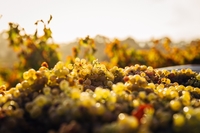Archives
October 2020
August 2020
June 2020
April 2020
January 2020
August 2019
July 2019
May 2019
August 2018
July 2018
May 2018
March 2018
November 2017
August 2017
February 2017
September 2016
January 2015
September 2014
July 2014
June 2014
May 2014
October 2013
July 2013
June 2013
May 2013
April 2013
March 2013
February 2013
January 2013
December 2012
November 2012
September 2012
August 2012
May 2012
April 2012
13 April 2020
Conventional vs Natural Wine

Many people are under the impression that wine is wine - believing that wine is just fermented grape juice, made via a signature method, from a variety of grapes, and only on rare occasions was anything ever added to the mix. This is far from the actual truth. Conventional wine vs natural wine; wine became not-quite-wine when economic value was placed upon it.
Let's consider what makes a wine successful; it needs to be consistent across the board - this can be difficult to achieve when the raw materials are highly variable; as such, they require the addition of additives to create consistency within the product. Conventional wines can contain a lot of approved additives - for example in Europe, the legal sulphite levels are 160ppm for red wines, 210ppm for white/rose wines and 400ppm for sweet wines. The grapes used in conventional wines are almost certainly heavily sprayed with pesticides and herbicides. They are treated in this way to cut labor costs and help to increase and maintain yield - but it comes at a high cost. These pesticides are showing up in conventional wines more and more, the use of these are essentially ruining the soils for our future generations.
A large proportion of conventional wine producers are distributing wine that isn’t quite wine anymore, it’s more of a controlled fermented grape juice with an additive cocktail thrown in for good measure - which could be an extreme cost to our health and to the planet.
Natural Wine
What precisely is natural wine, and how does it differ from biodynamic, organic and sustainable wine?
Natural Wine
Natural wines are the most stringent out of the four types mentioned above. These are the lowest intervention wine - grapes used are grown organically or biodynamically, hand-harvested and there are no additives thrown into the mix. These wines are the truest form of wine on the market, they are as close as nature intended as possible.
Biodynamic Wine
These wines are quite special, they are produced using biodynamically farmed grapes, with no synthetic interventions - and the growers take into account holistic and lunar cycles in terms of growing. They look at the vineyard as a live organism; nurturing every part of the process in order to maintain the soil for future growing seasons.
Organic Wine
Producing truly organic wine is no mean feat. The grapes are grown organically - this means without the use of herbicides or manufactured fertilisers or synthetic pesticides.
Sustainable Wine
This is quite a gray area; sustainable means that the grower has demonstrated sustainable practices and shown a commitment to a healthy future of the society, environment and the wine industry at large.